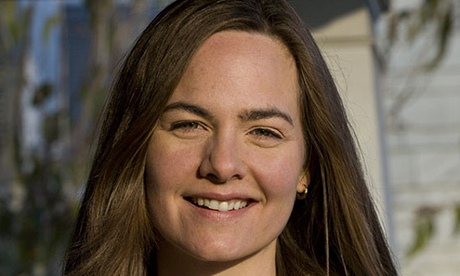
It's apt that the opening chapter of Christine Montross's second book is titled Bedlam, since an account such as this could easily, in less compassionate hands, become a modern-day version of London's old Bethlem hospital, where the mentally disordered were exposed to the public gaze as curiosities. Montross is an assistant professor of psychiatry at Brown University and a practising clinical psychiatrist, and her book reflects both strands of her work; it is rich with historical background and searching questions about the ethics of psychiatric treatment. But it is the vividly drawn case studies she shares – the human faces of her hospital's most terrifying disorders – that make the book so compelling.
Each chapter considers a particular aspect of psychiatric medicine through the lens of an individual's condition. Through Colin, who arrives dressed as Jesus in the grip of an apparently benign mania, she firmly debunks the romanticisation of madness and reflects on the point at which heightened spiritual experience can tip into illness. She recounts her frustrations with Lauren, a young woman repeatedly rushed to the emergency room because her response to distress is to swallow steak knives and broken glass. Here, as so often in mental health care, the moral questions are inseparable from the practical issue of resources. State-funded healthcare will not pay for Lauren to have the kind of ongoing therapy that might address the problems underlying her deliberate self-harming, yet her constant admissions and surgery end up costing the hospital thousands of dollars more per year than psychiatric treatment would.
Elsewhere, Montross describes a condition called body integrity identity disorder, where patients believe one or more of their limbs does not belong to them and will often attempt amputation with chainsaws or shotguns; she asks if it could it ever be ethical to perform elective surgery on a healthy body to treat a disordered mind. "How do we, as doctors, define 'help'? How do we define 'harm?'"
There are no straightforward answers in this book, and no neat happy endings. Montross readily acknowledges that psychiatry is an imprecise science (and that some clinicians doubt whether it is a science at all), and it is this willingness to embrace the uncertainties and ambiguities of her profession that lifts Falling into the Fire above the level of medical literature. The strange, sometimes comical, more often heartbreaking mutations of the human mind lead her to philosophical reflection on our relation to the world around us. Each chapter includes passages of memoir, anecdotes from her family life, often placed in stark contrast to the distress of her patients to remind us of the precarious nature of our grip on reality. "By what alignment of neurochemistry and circumstance have I been granted that solid balance?"
Falling into the Fire is a fine addition to a body of writing – including the work of Paul Broks, Kay Redfield Jamison and Oliver Sacks – that makes the strange and frightening territory of madness accessible to a lay readership. Most readers will find moments when they want to flinch and look away from the disturbing details Montross presents. It is easier to distance ourselves when the symptoms are extraordinary; few of us can imagine wanting to cut off our own legs. But the book's great achievement is to make us understand that these people on their locked wards are not freaks or monstrosities, to be gawped at like the inmates of the Bedlam.
One of the saddest stories in the book is that of Elizabeth, whose "normal" life was shattered when her son was killed by a drunk driver and her husband lost his job. "Standing on the edge with my patients… means that I must harbour a true awareness that I, too, could lose my child through the play of circumstance over which I have no control. I could lose my home, my financial security, my safety. I could lose my mind. Any of us could."

